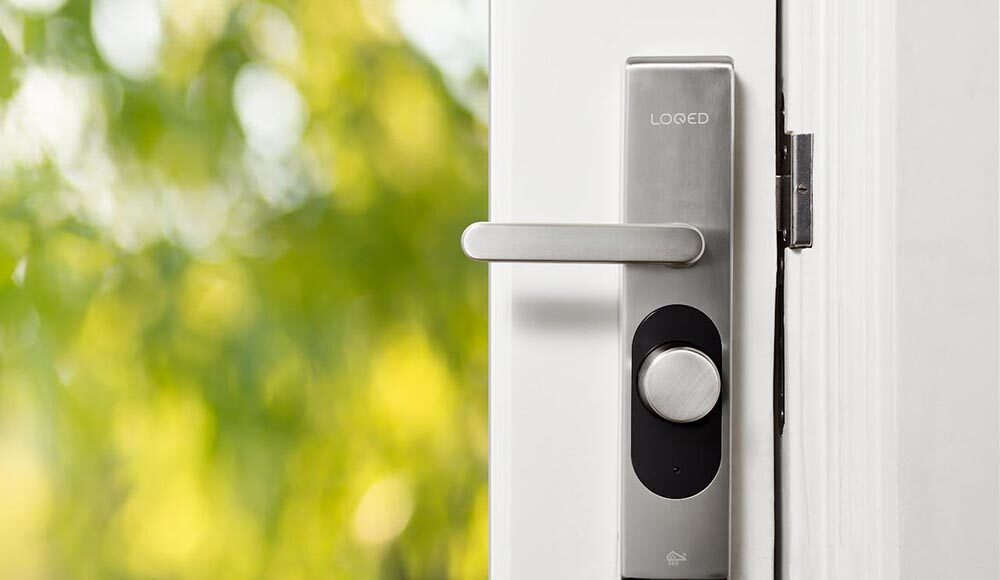Choosing the right door lock is crucial for ensuring the safety and security of your home. In this article, we’ll compare traditional locks and smart locks, weighing their pros and cons to help you make an informed decision about your home security.
Understanding the differences between these lock systems is essential for protecting your belongings and enhancing your overall home security.
Understanding Traditional Locks
Traditional locks are a fundamental component of home security, and while technology has advanced, their basic mechanism remains largely unchanged. Understanding how traditional locks work, and their inherent strengths and weaknesses, is crucial before exploring alternatives like smart locks. Considering the pros and cons of traditional locks is an important step.
What is a Traditional Lock?
A traditional lock, also known as a mechanical lock, is a security device that relies on physical keys and internal mechanisms to secure a door. These locks typically consist of a cylinder, pins, and a bolt. When the correct key is inserted, it aligns the pins, allowing the cylinder to turn and retract the bolt, thus unlocking the door. Traditional door locks are the basic locks which ensure the belongings are safe.
Advantages of Traditional Locks
One of the main advantages of traditional locks is their simplicity and reliability. Traditional locks are relatively inexpensive than smart locks, making them accessible to a wide range of homeowners. Additionally, traditional locks don’t rely on electricity or batteries to function, ensuring that you won’t get locked out due to power outages or technological glitches. They are familiar and easy to use for most people, offering a straightforward security measure. The locks work in a simple way.
Disadvantages of Traditional Locks
Despite their advantages, traditional locks also have disadvantages. Traditional locks are more vulnerable to forced entry and lock picking compared to some smart lock systems. Losing your key can be a major inconvenience, requiring you to replace the entire lock or call a locksmith. Also, traditional locks don’t offer features like remote access or notifications, which are standard in modern smart locks. Considering these disadvantages is essential when evaluating different door lock options. This can be a security issue, because the locks can be easier to hack.
Exploring Smart Locks
What is a Smart Lock?
A smart lock is an electronic door locking system that allows you to unlock and manage access to your home without using a physical key. These smart door locks often use technologies like Bluetooth, Wi-Fi, or a keypad for entry. Many smart locks offer remote access, allowing you to control your door lock from a smartphone app. With smart locks, you can grant temporary access to guests, monitor door lock activity, and receive notifications about who is entering or exiting your home, adding another layer of home security.
Advantages of Smart Locks
Smart locks offer several advantages over traditional door locks. One significant benefit is keyless entry, which eliminates the need to carry keys and reduces the risk of lost or stolen keys. Smart door locks enhance home security by providing features like remote access, activity monitoring, and customizable access codes. The ability to grant temporary access to visitors or service providers is another notable advantage. Furthermore, smart locks can integrate with other smart home security measures systems, creating a more connected and automated living environment.
Disadvantages of Smart Locks
Despite their advantages, smart locks also have some disadvantages. One major concern is the reliance on technology, which can be vulnerable to hacking or system failures. Power outages can render some electronic locks inoperable unless they have a backup power source. Additionally, smart locks can be more expensive than traditional locks. Privacy concerns related to data collection and storage are also important to consider when evaluating smart locks. Making smart locks worth it for your home security is another thing to consider.
Comparing Smart Locks vs. Traditional Locks
Security Features
When comparing locks versus traditional locks in terms of security features, smart locks often provide advanced capabilities beyond those of traditional door locks. Smart locks offer features like tamper alerts, activity logs, and remote locking/unlocking, enhancing your home security. Traditional locks may be more vulnerable to picking and forced entry, while smart locks often incorporate encryption and other security measures to deter hacking. However, the effectiveness of these security features also depends on the quality and implementation of the lock systems.
Convenience and Accessibility
In terms of convenience and accessibility, smart locks offer significant advantages over traditional door locks. Smart locks enable keyless entry through keypads, smartphone apps, or Bluetooth connectivity. This eliminates the need for physical keys, reducing the risk of lockouts and allowing for easy sharing of access with family or guests. Remote access capabilities also provide added convenience, enabling you to unlock or lock your door lock from anywhere. While traditional door locks are simple to use, they lack the flexibility and convenience of smart door locks.
Cost Considerations
When evaluating the pros and cons of smart locks vs. traditional locks, cost is a significant factor to consider. Traditional locks are typically less expensive than smart locks. Smart locks involve higher upfront costs due to their advanced technology and features. Additionally, there may be ongoing costs associated with smart locks, such as battery replacements or subscription fees for certain features. Weighing the initial investment against the long-term benefits and features of each type of door lock is essential for making an informed decision about your home security needs.
Pros and Cons of Door Security Options
Evaluating Home Security
When evaluating home security, consider the pros and cons of various door lock options. Smart locks offer advanced security features like remote access and notifications, while traditional door locks provide simplicity and reliability. Assessing your specific safety and security needs will help you determine which lock systems best fit your requirements. Both traditional locks and smart locks have their place, and the right choice depends on your priorities and budget. Weighing the disadvantages of both options ensures a well-informed decision.
Keeping Your Belongings Safe
Keeping your belongings safe is a primary concern when selecting door locks. Smart locks offer enhanced protection with features like tamper alerts and activity logs, helping to deter intruders. Although traditional locks are more vulnerable, they still provide a basic level of security measures. Strengthening your home security involves not only choosing the right lock systems but also implementing additional security measures such as reinforcing door frames and installing security cameras. Ultimately, a multi-layered approach is essential to ensuring the safety and security of your home and possessions.
Making the Right Choice for Your Needs
Making the right choice between smart locks vs. traditional locks involves carefully considering your individual needs and preferences. If convenience and advanced security features are paramount, a smart door lock might be the best option. However, if simplicity and cost-effectiveness are your primary concerns, a traditional door lock may be more suitable. Evaluating the pros and cons of each type of door lock, along with your budget and technical comfort level, will guide you toward the decision that best meets your home security requirements. This is whether smart locks are worth it or not.
Are Smart Locks Worth It?
Assessing the Value of Smart Locks
Assessing whether smart locks are worth it involves evaluating their benefits against their costs. Smart locks offer numerous advantages, including keyless entry, remote access, and enhanced security features, which can significantly improve your home security. However, they also come with higher upfront costs and potential technological vulnerabilities. Determining whether the convenience and advanced capabilities of smart door locks justify the investment requires careful consideration of your personal needs and priorities. A locks versus traditional locks comparison should be done correctly before installation.
Long-Term Benefits vs. Short-Term Costs
When weighing the long-term benefits vs. the short-term costs of smart locks, consider the potential savings and added convenience they can provide over time. While smart locks may be more expensive than traditional locks initially, they can eliminate the need for rekeying or replacing lost keys. Remote access and activity monitoring features can also offer peace of mind and improve your overall home security. Evaluating the long-term value and convenience of smart locks can help determine if they are a worthwhile investment for your home. The locks work in a simple way.
Consumer Experiences and Feedback
Consumer experiences and feedback provide valuable insights into the real-world performance and reliability of smart door locks. Reading reviews and testimonials from other homeowners can help you assess the pros and cons of different smart lock models. Pay attention to feedback regarding ease of use, security features, battery life, and customer support. Understanding the experiences of other users can assist you in making an informed decision about whether smart locks are the right choice for enhancing your home security. Checking that the locks are essential for the buyers is a must.
##




